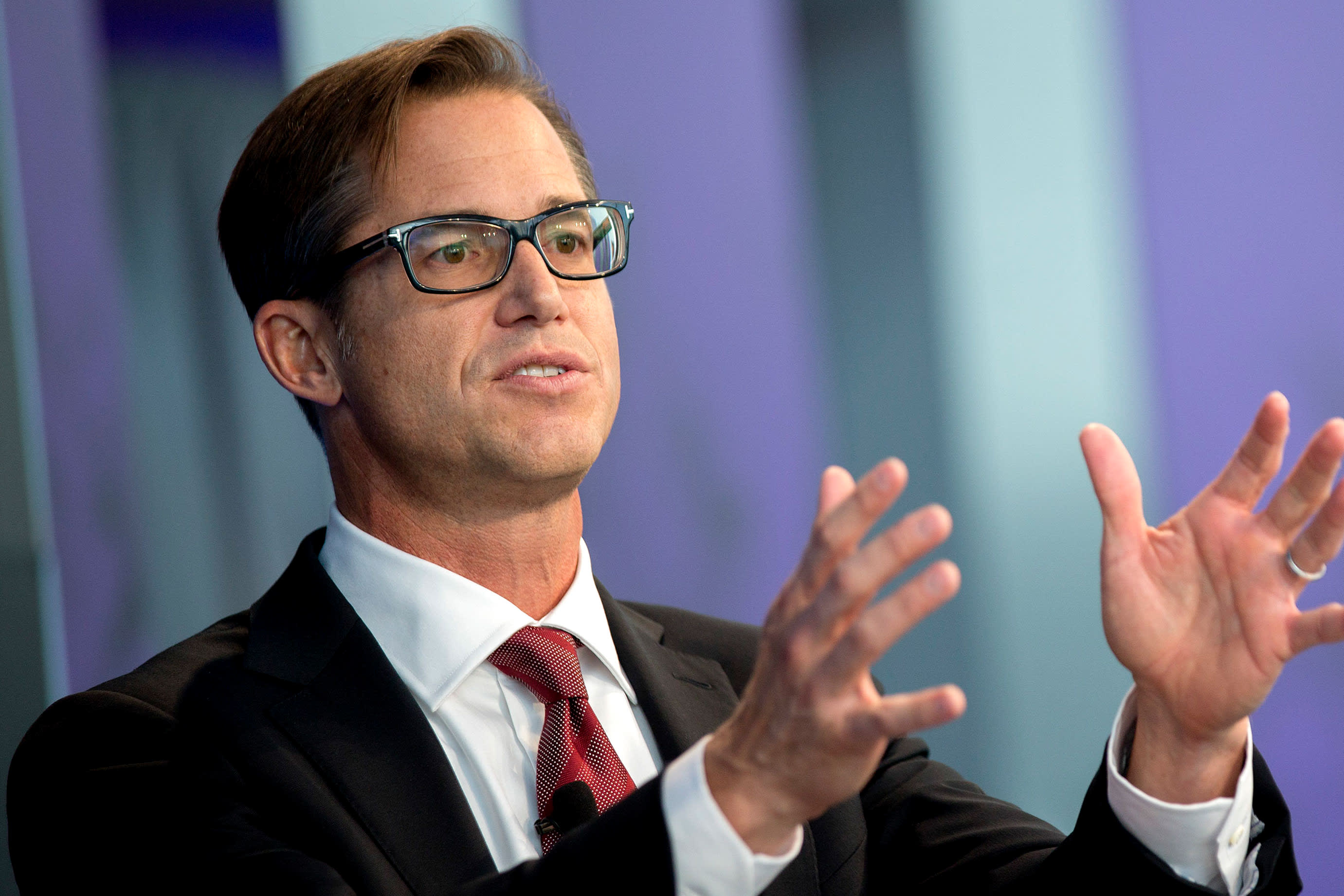Zillow, the digital real estate company, said on Tuesday that it’s exiting Offers, its business that buys and flips homes, and eliminating 25% of its workforce.
The announcement was attached to Zillow’s third-quarter earnings report. The company’s revenue and earnings missed analysts’ estimates.
“We’ve determined the unpredictability in forecasting home prices far exceeds what we anticipated,” Zillow CEO Rich Barton said in the release. “Continuing to scale Zillow Offers would result in too much earnings and balance-sheet volatility.”
The stock dropped about 7.5% in extended trading following a 10% plunge during regular market hours. The shares are now down about 10% for the year as of Tuesday’s close.
Here are the key numbers from earnings:
- Earnings per share: loss of 95 cents adjusted vs. profit of 16 cents per share expected in a Refinitiv survey of analysts
- Revenue: $1.74 billion vs. $2.01 billion expected by Refinitiv
Revenue in Zillow’s Offers business, which competes with Opendoor, climbed to $1.17 billion in the quarter. That’s way up from $186 million a year earlier, which was in the middle of the pandemic and in a dry period for transactions. However, the homes segment, which is mostly Offers, lost $422 million in the quarter, producing an overall net loss at the company.
Shares of Opendoor rose 7% in extended trading. The stock plunged alongside Zillow earlier in the day, dropping 15% at the close.
Zillow launched Offers in December 2019, starting with Southern California markets. The iBuying, or instant buying, product allowed homeowners to sell their home to Zillow for cash, eliminating a lengthy bidding, sales and closing process. They also didn’t have to worry about costly repairs before putting their house on the market.
“After closing on a home, Zillow will take care of necessary repairs, working with local contractors to complete projects like a fresh coat of paint, servicing HVAC units and other work a typical homeowner would do to get their home ready for sale,” Zillow said in a press release at the time.
But the home-flipping market proved to be a drag for a company that had built its brand on listing homes across the country and helping buyers and sellers connect through a marketplace. Prior to shuttering the business, the company said on Monday that it would stop buying houses through the end of the year, citing tight labor and supply markets.
“We’re operating within a labor- and supply-constrained economy inside a competitive real estate market, especially in the construction, renovation and closing spaces,” said Jeremy Wacksman, Zillow’s operating chief, in a statement this week. “We have not been exempt from these market and capacity issues and we now have an operational backlog for renovations and closings.”
Barton told CNBC’s “Closing Bell” after the report that Zillow’s ultimate failure was its inability to predict housing prices accurately. At the start of the Covid-19 pandemic, the market dried up. It then bounced back dramatically, and prices in many markets have climbed to record levels.
For the home-flipping business to be profitable, a company has to be able to sell a home for more than the purchase price and have enough margin remaining to cover all the other costs, such as maintenance and sales and marketing expenses. Barton said the company realized that it’s not in a position to accurately predict where home prices will be in six months “within a narrow margin of error.”
Additionally, Barton said the Offers product reaches only a small sliver of the company’s overall audience, which is effectively the entire market of homebuyers and sellers across the country.
Zillow’s internet, media and technology business grew revenue 16% in the quarter to $480 million, with gross profit of just over $130 million.
“We just determined that being an iBuyer was too risky, too volatile and ultimately addressed too few customers,” Barton said. He added that, in closing the business, “the logic is clear, the emotion is difficult” because of the layoffs.
Bloomberg reported on Monday that Zillow was looking to sell 7,000 homes for $2.8 billion to institutional investors, as it looked to unload its portfolio of properties. Some of those sales would be for below the purchase price, Bloomberg said.
Barton didn’t confirm or deny the numbers in the Bloomberg report. He told CNBC that the company has always sold to those types of buyers since entering the market, and he acknowledged that Zillow does have properties that it needs to sell. The company bought 3,805 houses in the second quarter and sold 2,086 in that period.
“We’re not in any kind of fire sale,” he said. “We’ll wind down the inventory in an orderly way.”
WATCH: Zillow misses on revenue
